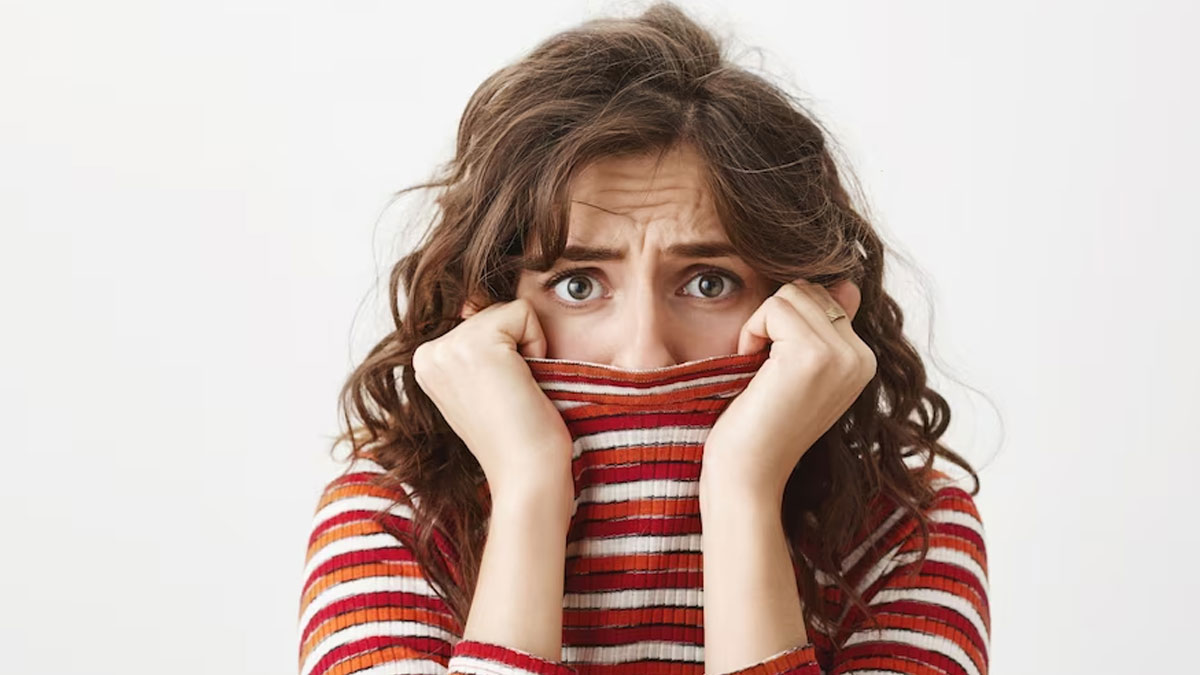
Panicking is often referred to as a feeling of being alarmed, scared, and nervous. It is used synonymously with anxiety, which indicates a moment of dread, and uneasiness. But while you may casually use the two terms interchangeably, panic attacks and anxiety attacks are not the same. Speaking with the OnlyMyHealth team, Dr Shuchin Bajaj, Founder-Director, Ujala Cygnus Group of Hospitals, explains the difference between the two along with some coping strategies.
Table of Content:-
Panic Attack Vs. Anxiety Attack

The Diagnostic and Statistical Manual of Mental Health Disorders (DSM) defines panic attacks as "an abrupt surge of intense fear or discomfort", which often peaks within minutes and can be accompanied by a feeling of detachment from reality, reports research published in the StatPearls Publishing.
Also Read: What Are The Symptoms Of Panic Attack? Know From Expert
According to Dr Bajaj, a panic attack basically is a sudden and intense feeling of fear or terror, which leads to symptoms, such as a racing heart, shortness of breath, trembling, sweating, chest pain, and a sense of impending doom.
Contrary to panic attacks, the DSM does not mention anxiety attacks, but calls it a feature of a number of common psychiatric disorders. It is usually characterised by excessive worry, restlessness, muscle tension, and other symptoms.
The primary difference between a panic attack and an anxiety attack is that the former typically occurs unexpectedly and suddenly, whereas the latter is caused by certain stressors.
What Causes Panic Attack?
Panic attacks are sudden, often without an exact cause. According to the National Institute of Mental Health (NIMH), those who have frequent and unexpected panic attacks can often be diagnosed with panic disorder. However, not everyone who experiences a panic attack will develop panic disorder.
As far as causes of panic attacks are concerned, the NIMH says that sometimes it runs in families, but no one knows for sure why some family members have it while others don’t.
Dr Bajaj says, “Triggers for panic attacks can vary widely, but common factors include stress, trauma, phobias, or a family history of panic disorder.”
What Causes Anxiety Attack?

Anxiety attacks are often triggered by stress, major life changes, or ongoing worry and apprehension. The primary causes include work, relationships, financial concerns, or health issues. They can also result from underlying anxiety disorders like generalised anxiety disorder, warns Dr Bajaj.
Also Read: More Than 50% People With Autoimmune Disease Experience Depression And Anxiety: Study
Difference In Duration
Interestingly, the duration of how long a panic attack or an anxiety attack lasts can help differentiate between the two.
The Medical News Today suggests that a panic attack lasts between 5-20 minutes and peaks at 10 minutes, whereas an anxiety attack does not peak in a similar way and most lasts between a few minutes and half an hour.
Coping With Panic Or Anxiety Attacks

"Panic and anxiety attacks are distressing but manageable experiences,” says Dr Bajaj, adding, “Breathing exercises, mindfulness, and seeking professional guidance can provide effective coping strategies.”
If you’re someone taking care of a person dealing with a panic or anxiety attack, it's important to stay calm, reassure them, and encourage slow, deep breaths.
“You can also suggest grounding techniques like focusing on sensory experiences or counting. If the attacks are frequent or severe, professional help may be necessary,” the doctor adds.
Most importantly, it is crucial to remember that we are not alone in facing these challenges.
Also watch this video
How we keep this article up to date:
We work with experts and keep a close eye on the latest in health and wellness. Whenever there is a new research or helpful information, we update our articles with accurate and useful advice.
Current Version